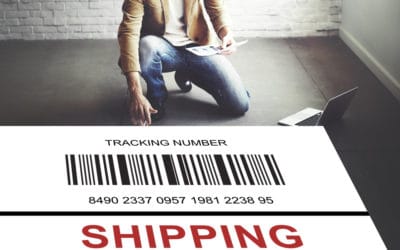What You Need to Know About Importing Cargo in Australia.
In our global world trade is international and imports and exports are a daily matter in business. No matter if you decide to import machinery, goods or raw materials, there are a few rules you need to watch for to get your cargo released quickly and avoid huge fines.
If you are thinking about starting an import business or you see an opportunity for your business in importing from abroad, you might be thinking that it is a complicated, lengthy and unpleasant process.
However, with careful preparation and consideration of legislation, you can make it work and import cargo profitably!
Here is what you will need to start importing cargo in Australia:
- Get a permit – there are very few goods that are completely prohibited for imports. Most goods and materials can be easily imported with a permit.
- Is it over $1000? Goods below that limit can be imported with no customs’ declaration (still, check for the permit!). This basically means that you can import samples without a customs declaration. These goods need Customs and Border Protection on a Self-Assessed Clearance (SAC) declaration that you can file online.
- Tobacco and alcohol undergo special regulations. Your lawyer can shed some light on the regulations for you.
- If your goods are worth more than $1000 you will need to file a customs declaration and your goods will be taxed. Taxes vary greatly according to the nature of goods imported but start at 10%.
- You do not need a license to import goods, however, as mentioned above you might need a permit so double-check with your lawyer or shipping broker.
- Imported goods need to be labeled correctly according to the Commerce (Trade Descriptions) Act 1905 and the Commerce (Imports) Regulations 1940. Basically these require you to be truthful about the nature of the goods, describe them in English language and include any details on the goods.
- To release your goods from customs you will need to file an Import Declaration with Customs and Border Protection. You can also email it to them! After the declaration is filed and the taxes and duties – paid, the goods are released to you.
- You will need an evidence of identity (EOI) to receive the imported goods.
- If you are a one-time or first-time importer, you a strongly advised to seek the assistance of a customs broker. Australian Customs and Border Protection Service will provide limited assistance to first-time importers only. You will need:
- an invoice
- a bill of lading or air waybill
- other papers, such as packing list and insurance documents.
There are a few tricky points here but basically one must follow these steps:
– find out what permits are required for importing the goods
– file an Import Declaration with customs
– pay taxes and duties
– prove identity
This is simplified blueprint for importing cargo and it might get complicated with huge freights and specific goods but everyone generally follows these steps. A certified broker or a lawyer specialized in shipping and imports can help you with more complex imports.
Importing cargo is a part of business many owners and managers avoid or refuse to tackle because they consider it a complicated matter that only big corporations have the ability to deal with.
No! Every business – small or big can grow by importing ready goods or raw materials from abroad especially with the proximity of the booming Asian economies.
Don’t miss the opportunities just because you don’t understand all the regulations. Consult a lawyer today and start exploring the opportunities of import business.



